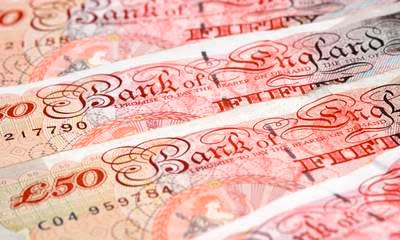Scrap £50 Note 'To Make Bad Guys' Lives Harder'

High (LSE: 0O9Y.L - news) -value bank notes should be scrapped as part of the fight against financial crime and terrorism, according to a new report.
The study by the Harvard Kennedy School recommended that the UK's £50 bill should stop being printed as well as the $100 and €500 notes.
Such high-value notes are the payment method of choice for the criminal underworld and scrapping them would be a big step forward in disrupting the business models of these "bad guys" the report said.
It would make it more difficult for criminals to carry out large transactions with no record.
The study estimate that global crime flows total $2tn (£1.4tn) per year, with corruption adding another $1tn (£700bn).
Peter Sands, the former chief executive of Standard Chartered (BSE: 580001.BO - news) bank who led the study, said eliminating high-value notes would "make life harder for those pursuing tax evasion, financial crime, terrorist finance and corruption".
"Without being able to use high denomination notes, those engaged in illicit activities… would face higher costs and greater risk of detection," he said.
But despite heavy investment in systems and intelligence gathering to crack down on the flow of illegal funds, only 1% of it is seized, the 'Making it Harder for the Bad Guys' report found.
However Mr Sands said that this move should not lead to the stopping of cash payments altogether.
He added: "Despite the rapid growth and development of electronic payment mechanisms, cash stills plays a vital role in the functioning of the economy.
"In every country cash is still the predominant method of making small payments, which represent the vast majority of all payments."
Mr Sands quit Standard Chartered last year. The bank was fined $667m (£464m) in 2012 by US regulators for breaking US sanctions by hiding transactions linked to Iran so they would not be detected.

 Yahoo Finance
Yahoo Finance 